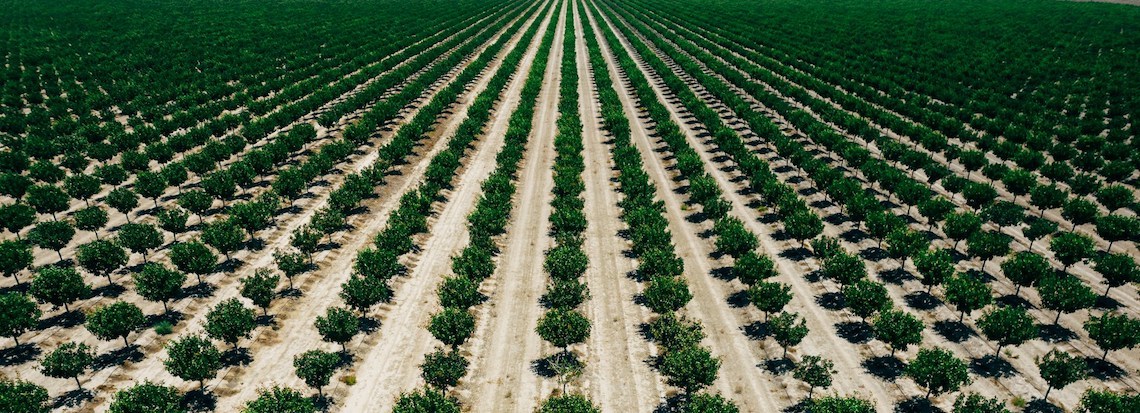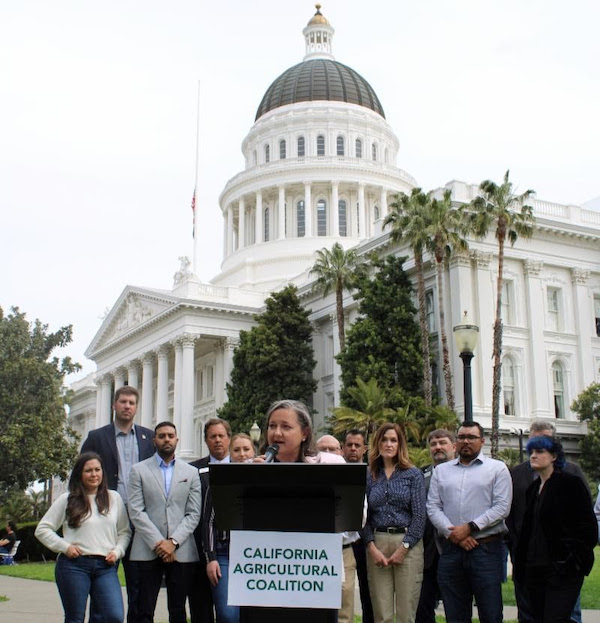
Farm land photo by Karsten Winegeart on unsplash.com
Written by Frank Lopez
Farmers and agricultural leaders are once again highlighting the challenges they face and calling for more attention to the regulatory framework.
California Farm Bureau President Shannon Douglass spoke at the California State Capitol on March 19, identifying critical issues faced by the state’s farmers and ranchers, stressing more action needed to support small and mid-sized farms, streamline regulations and invest in innovative water management practices.
She spoke on behalf of the California Agricultural Coalition, joined by fellow coalition members Michael Miller, director of government relations for the California Association of Winegrape Growers and Roger Isom, president/CEO of the California Ginners and Growers Association and Western Tree Nut Association.
Douglass cited the most recent U.S. Census of Agriculture, saying that California has lost 15,000 farms between 2012 and 2022.
According to a study from Cal Poly San Luis Obispo, the regulatory cost of compliance by agriculture has increased nearly 1,400% in less than 20 years.
The coalition, which includes two statewide agricultural organizations, is asking the California Legislature for $600 million a year for five years to fund programs to help farmers through the Greenhouse Gas Reduction Fund.
Douglass said the challenges facing California agriculture are urgent but not insurmountable.
“By working together, with farmers, regulators and policymakers, we can create a more sustainable and resilient agricultural system that continues to feed our state and nation,” She said.

In February, Sen. Shannon Grove (R-Bakersfield) introduced Senate Bill 628, which would create a tax credit for agricultural employers to help cover the costs of providing overtime wages to farm workers—a move that Douglass said the coalition is grateful for.
She said most of the state’s farmers cannot offer the overtime hours they used to. There is hope the bill passes so farmers could offer extra hours to their workers, Douglass said.
She added there are so many layers of regulation depending on the type of farming, and it has become very burdensome on California’s farms.
Douglass pointed out that farmers and ranchers are good stewards of the land because they need to be.
“Many farmers adopt environmental regulations on their own, but the challenge is that not one thing works for everyone,” she said. “Sometimes regulations collide.”
The second Trump presidency is leaving ranchers and growers hopeful their concerns might be better heard by the government, but there is also recognition that change can come with challenges, Douglass said.
There is also concern about farm consolidation, especially with repeating years of a tough farm economy and tougher farm commodity prices.
There has been an increased rate of costs, while there is a reduction of farms, she pointed out.
Trump’s tariffs remain at the top of mind of members of the coalition, with California growers having to adapt because their exports have a higher value — and it’s an expensive state to grow in.
“We spend a lot of time as farmers and ranchers going across the world and building new markets, creating the infrastructure and logistics to make that happen. We don’t want to lose those markets. It takes time to rebuild them,” Douglass said.
There is the constant challenge of finding skilled labor, from workers in the fields to roles requiring degrees, including farm managers and agronomists, she said
Trump’s policies on immigration and concerns about mass deportations have stoked fear in a lot of people.
While she said the coalition has not found any substantiated reports of raids on farms, when the fear is there, workers might find it harder to go to work.








